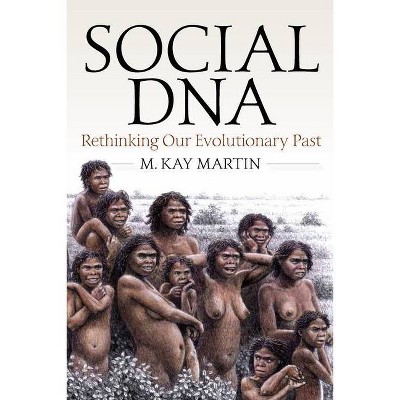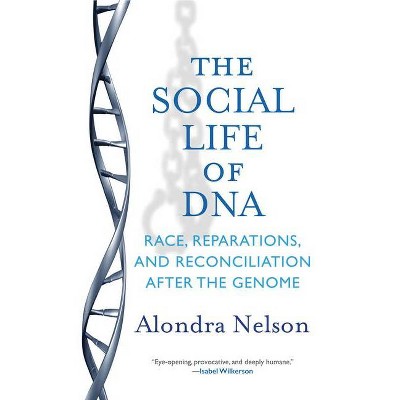Social DNA - by M Kay Martin (Paperback)

Similar Products
Products of same category from the store
AllProduct info
<p/><br></br><p><b> Book Synopsis </b></p></br></br><p> What set our ancestors off on a separate evolutionary trajectory was the ability to flex their reproductive and social strategies in response to changing environmental conditions. Exploring new cross-disciplinary research that links this capacity to critical changes in the organization of the primate brain, <em>Social DNA</em> presents a new synthesis of ideas on human social origins - challenging models that trace our beginnings to traits shaped by ancient hunting economies, or to genetic platforms shared with contemporary apes.</p><p/><br></br><p><b> Review Quotes </b></p></br></br><br><p> <em>"</em>Social DNA <em>is written with clarity and wit. At times, its enthusiasm is contagious; at others, its polemics become repetitive--although Martin's criticisms are often well taken...Martin's is an intriguing approach ... deserving further critical attention. This book will be of interest to both specialists and informed general readers concerned with big-picture, interdisciplinary human evolution research."</em> <strong>- Quarterly Review of Biology</strong></p> <p> <em>"Exploring new cross-disciplinary research that links this capacity to critical changes in the organization of the primate brain, [this volume] presents a new synthesis of ideas on human social origins, thereby challenging models that trace our beginnings to traits shaped by ancient hunting economies, or to genetic platforms shared with contemporary apes... [The author] has drawn upon an impressive body of research to provide an exceptionally informed and informative overview respecting the evolution of the human species that will prove to be a valued addition to community and academic library Anthropology collections and supplemental studies lists."</em> <strong>- Midwest Book Review</strong></p> <p> <em>"This book makes tremendous efforts to get away from typical prejudices about human nature and society, whether from the middle ages, the scientists of the 19th Century, or the rationalists of the mid-20th... This overview of many recent findings in a range of evolutionary research is potentially a game-changer."</em> <strong>- Wendy James</strong>, University of Oxford</p> <p> <em>"Clearly and accessibly written... [this book] makes a valuable contribution to current bridge-building efforts across two unfortunate divisions within anthropology: that between UK and US scholarly traditions, and that between bio-evolutionary and sociocultural models."</em> <strong>- Hillary Callan</strong>, Director Emerita, Royal Anthropological Institute</p><br><p/><br></br><p><b> About the Author </b></p></br></br><p> <strong>M. Kay Martin</strong> has a diversified research, planning, and management background in the academic, public, and private sectors; she has taught at the University of California, Santa Barbara, and has since held executive posts in applied anthropology, environmental research, resource conservation, and other fields. She was the principal author of <em>Female of the Species</em> (1975, Columbia University Press) and has also published ethnohistorical and cross-cultural studies on foraging societies.</p>
Price History
Price Archive shows prices from various stores, lets you see history and find the cheapest. There is no actual sale on the website. For all support, inquiry and suggestion messages communication@pricearchive.us




















